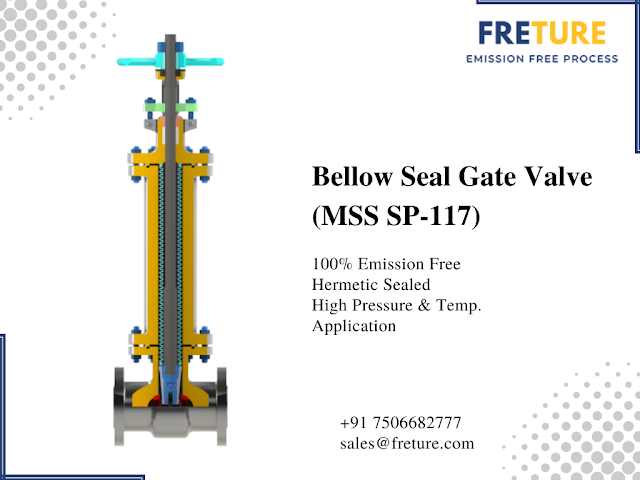Gate valves are pivotal components in fluid control systems, known for their ability to regulate and stop the flow of liquids. In recent years, the evolution of gate valve technology has introduced bellow seal gate valves, offering enhanced sealing capabilities and improved performance compared to traditional gate valves. In this article, we'll conduct a comprehensive comparative analysis of bellow seal gate valves and traditional gate valves, examining their features, advantages, and areas of application.
Section 1: Understanding Traditional Gate Valves
1.1 The Classic Design:
Traditional gate valves have a simple yet effective design, featuring a gate that moves perpendicular to the flow path to control fluid flow. Their straightforward mechanism allows for full bore or full shutoff positions.
1.2 Operational Limitations:
While traditional gate valves are efficient in many scenarios, they are prone to issues like leakage and damage caused by high fluid velocities and pressure differentials.
Section 2: Introducing Bellow Seal Gate Valves
 |
| Bellow Seal Gate Valve Manufacturer in Mumbai, India |
2.1 The Bellow Seal Advantage:
Bellow seal gate valves enhance the traditional design with a bellows element that provides a hermetic seal around the stem. This innovation addresses leakage concerns and minimizes fugitive emissions.
2.2 Fugitive Emissions Prevention:
Bellow seal gate valves significantly reduce the risk of fugitive emissions, which are environmentally harmful and can pose health and safety risks to workers.
2.3 Increased Longevity:
The bellows element protects the stem from direct contact with the fluid, reducing wear and corrosion and ultimately extending the valve's operational lifespan.
Section 3: Comparative Advantages
3.1 Sealing Performance:
Bellow seal gate valves excel in sealing performance, preventing leaks and emissions that are often encountered in traditional gate valves.
3.2 Safety and Environmental Impact:
Bellow seal gate valves contribute to a safer working environment by minimizing fugitive emissions, aligning with stringent environmental regulations.
3.3 Maintenance Requirements:
Traditional gate valves may require more frequent maintenance due to wear and leakage issues. Bellow seal gate valves, with their improved longevity, can reduce maintenance cycles.
Section 4: Applications and Industry Suitability
4.1 Chemical and Petrochemical Industries:
Bellow seal gate valves find favor in industries handling volatile or hazardous chemicals, as their sealing capabilities mitigate the risks associated with leakage.
4.2 Oil and Gas Sector:
In oil and gas applications, where fugitive emissions are a concern, bellow seal gate valves play a vital role in enhancing safety and meeting emission standards.
4.3 Pharmaceuticals and Food Processing:
Industries with stringent hygiene requirements benefit from bellow seal gate valves, as they prevent product contamination and ensure product integrity.
Section 5: Considerations for Valve Selection
5.1 Cost Considerations:
While bellow seal gate valves might have a higher upfront cost, their extended lifespan and reduced maintenance requirements can result in cost savings over time.
5.2 Operational Needs:
Understanding the specific operational needs, fluid characteristics, and potential environmental impacts will guide the decision between traditional and bellow seal gate valves.
The comparative analysis between bellow seal gate valves and traditional gate valves highlights the advancements that bellow seal technology brings to the realm of fluid control. While traditional gate valves have their merits, bellow seal gate valves offer superior sealing performance, enhanced safety, and reduced maintenance requirements. The choice between the two ultimately hinges on the specific industry, application, and desired outcomes. By understanding the advantages and limitations of each, industries can make informed decisions that align with their operational goals and regulatory obligations.


